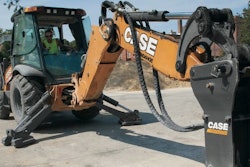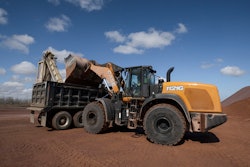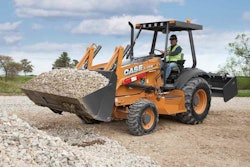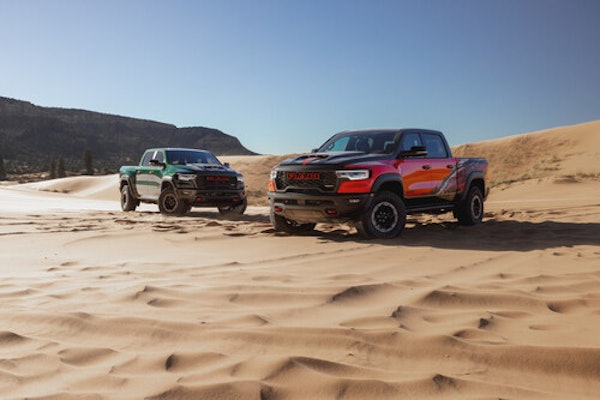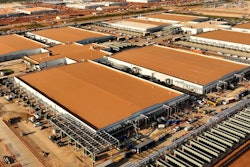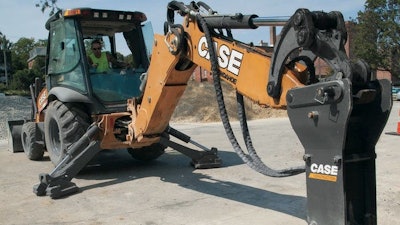
Contract negotiations are expected to resume between United Auto Workers union members on strike at two CNH Industrial plants on August 15 in Madison, Wisconsin.
The resumption of talks will come about two weeks after the manufacturer of construction and agricultural machinery reported that it had finished the first half of 2022 with record second-quarter revenues increasing 17.5% to $6.08 billion.
The strike began May 2, two days after the union's contract with CNH expired. UAW workers want increased wages, more flexibility on time off and reduced overtime.
Now in its 14th week it appears both sides are entrenched in their positions, with the UAW firmly supporting its workers via strike pay and health insurance after the company removed health benefits for the union members on strike.
The CNH strike started only seven months after a similar challenge by John Deere workers in October 2021 that lasted five weeks, concluding with employees receiving 10% raises and improved retirement benefits.
Although preliminary indications suggested the impact of the strike would be minimal, as it continues to draw out it is expected to potentially have a larger impact on not only CNH but other manufacturers.
According to Richard Glowacki, chairman of Local 180 and president of the UAW CNH Council, dealers have reportedly been turning down receipt of machines being made at the plants.
“We've made a fair and equitable offer to resolve the strike and very much want to have our workers back in our plants for us and for their families,” CNH Chief Executive Officer Scott Wine said. “We have consistently maintained our willingness to meet and are pleased that the union has agreed to resume negotiations in mid-August.”
The CEO acknowledged that to support the company’s dealers and customers they had implemented “mitigation efforts” to keep both facilities operational.
Within days of the strike, CNH hired a temporary workforce to continue operating the plants. However, according to UAW officials, it appears that workforce had been assembled prior to the contract deadline in anticipation of a strike, based on the company’s position at the bargaining table.
The last formal offer presented by CNH on May 19 was rejected by UAW with no vote being taken because the offer fell far short of the members’ bargaining agenda. CNH described that offer as a significant financial boost from its original offer on May 1.
A letter from a group of U.S. senators led by Bernie Sanders, D-Vt., and the UAW increasing pay for striking workers in June elicited no movement from CNH in the negotiations. However, shortly after the Sanders and Tammy Baldwin, D-Wis, visited the picket lines, the two sides returned to the table June 14. Union leaders said CNH showed little movement from its "final" May 19 proposal.
According to union officials, the June 14 offer merely moved some of the money around to make it appear different from the previous offer. Based on the content of the proposal, negotiations halted again with no future dates scheduled. UAW leaders even canceled their hotel stays that day to save money.
“The membership's demands are not being met by the company,” Glowacki said. “The company’s offer has been shared with the membership in scheduled informational meetings, so they know what it entails, and they are not interested in it whatsoever.”
He noted that the membership feels strongly that CNH can offer much better and is prepared to stay out for as long as it takes for a fair agreement.
“The company hasn’t helped themselves with their underhanded tactics, and the membership is more determined now than ever before,” Glowacki said.
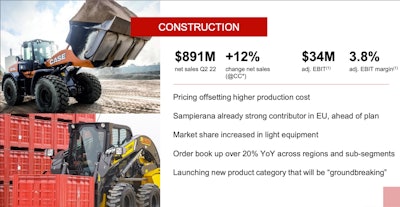
Record Q2 earnings
As to the Q2 earnings, within its construction division, CNH reported a net sales increase of 12% to $891 million, mainly driven by pricing volumes in South America and the addition of Sampierana to its business. The company’s portfolio of construction equipment is sold under three brands: Case Construction Equipment, New Holland Construction, and most recently, Eurocomach, part of the portfolio acquired with Sampierana.
Wine said the construction division delivered $34 million in earnings before interest and taxes at a 3.8% margin, in line with the trajectory the company outlined at its Capital Markets Day.
“The Sampierana acquisition is delivering ahead of plan and is playing a pivotal role in accelerating profitable growth in Europe, where we saw market share gains in all major product categories aside from large excavators,” the CEO noted. “We are currently integrating with dealer networks and will be increasing Sampierana’s manufacturing capacity to better support the light-end of our excavator range.”
He said order books continued to build up more than 20% year-over-year in both heavy and light equipment with increases in all regions excluding heavy equipment in APAC. In North America our 2022 production slides are essentially sold out.
Case Construction recently launched the Minotaur DL550, a new equipment category compact dozer loader.
Wine said global industry volume for construction equipment decreased in both heavy and light sub-segments, with heavy down 18% and light down 12%, mostly driven by a 29% decrease in light and heavy equipment demand for Asia Pacific, particularly in China. Demand decreased 3% in North America, 3% in EMEA and increased 22% in South America.
“Our construction equipment estimates have also been updated to reflect improvement in the rest of the EMEA region, while AIPAC is now expected to be a bit worse,” Wine said.
He noted that pricing should be stronger in Europe in the second half, and that along with improving production, better margins in the region should occur.
“Our order books remain strong and dealer inventories are low,” Wine said. “We intend to somewhat replenish our dealer channels over the next 12 months, but the stock levels would be well south of where they were in the last cycle.”



